We know that living with gut symptoms sucks and that Irritable Bowel Syndrome can be hard to manage. So this IBS awareness month, we’re here to bring you a range of dietary and non-dietary strategies to help you manage your gut symptoms better.
This article will cover the following:
- FODMAP Chat Session with Emily Clarke from the Monash University FODMAP Team
- If you have just been diagnosed with IBS, what first-line dietary changes should you try?
- Does how we eat impact our IBS symptoms?
- Can gulping down drinks, chewing gum or using breath mints increase IBS symptoms?
- Gut-directed hypnotherapy – can it really help reduce IBS symptoms?
- What techniques can people use to manage stress/anxiety that might reduce IBS symptoms?
- When it comes to exercise, are there different types of exercise that are better for IBS?
- Are there any medications or other strategies that can help people with IBS?
Watch The Video
Strategies for Managing IBS Symptoms
Chat Notes
Host: Alana Scott from A Little Bit Yummy
Monash University FODMAP Dietitian: Emily Clarke
If you have just been diagnosed with IBS, what first-line dietary changes should you try?
We’d recommend that you work with a dietitian who can provide individualised nutrition advice. They can look at your diet and assess if you are getting enough water and fibre, eating a good variety of healthy foods and check to see if your lifestyle choices, like exercise, are working for you. Sometimes making small food and lifestyle changes are enough to reduce symptoms.
Other people need a more structured approach to identifying food intolerances, like the low FODMAP diet. There isn’t a one size fits all approach to reducing IBS symptoms – each person needs their own individualised plan.
In this session, we aren’t discussing the low FODMAP diet in-depth, however these resources can help you start the low FODMAP diet and learn more about the three phases of the low FODMAP diet.
Does how we eat impact our IBS symptoms?
It definitely can! We often live a very fast-paced life, which can involve eating on the go, eating a lot of takeout food, or eating our meals in front of the tv or other devices. Unfortunately, this means we’re often not paying attention to what we eat, whether we chew, or eat really fast – all of which can affect our digestion.
When it’s time for a snack or a meal:
- Sit down at a table.
- Practise mindfulness while eating – take time to look at your food – what does it smell like? What does it taste like? Try to slow down how fast you are eating and tell yourself you are enjoying the meal.
- Chew your food. Digestion actually starts in your mouth. Smelling and tasting the food helps release enzymes into the salvia and chewing the food helps break it down, making it easier for the next phase of digestion.
Eating meals when distracted can mean you miss your ‘hungry cues’ and lead you to eat larger meals, adding more pressure on your digestive system.
Can gulping down drinks, chewing gum or using breath mints increase IBS symptoms?
Many IBS symptoms come from the build-up of gas in the gastrointestinal tract. So if you’re sipping from a straw, having carbonated drinks, or chewing gum, that’s extra air entering the digestive system, which will have to come out somewhere! Either as a burp or bottom wind.
Breath mints and chewing gums are usually sugar-free and often contain polyols like sorbitol; these are FODMAPs that can produce extra wind and have a laxative effect.
Gut-directed hypnotherapy – can it really help reduce IBS symptoms?
Yes, gut-directed hypnotherapy can help reduce IBS symptoms. Monash University has researched gut-directed hypnotherapy alongside a group of psychologists and found that gut-directed hypnotherapy can help reduce symptoms in about 70-80% of people with IBS. The effectiveness of gut-directed hypnotherapy is similar to the low FODMAP diet. Gut-directed hypnotherapy is a great alternative for people who haven’t had success with the low FODMAP diet or find the diet is too restrictive.
The idea behind gut-directed hypnotherapy is to change how the brain and gut communicate by tapping into your subconscious through relaxation techniques and visualisations.
What techniques can people use to manage stress/anxiety that might reduce IBS symptoms?
Everyone has some kind of stress or anxiety, and having IBS can make these feelings worse! Ways of managing will look different for each individual, but some general tips that help most people include:
- Increase the amount of exercise you do each week – this boosts feel-good endorphins. For example, go for a gentle walk or even a brisk walk 4-5 times per week.
- Practise mindfulness or yoga.
- Have a good night time routine. For example, try a hot shower and a cup of tea in the evening to help wind down before bed.
- Talk to friends and family to help take the weight off your shoulders.
Managing stress and anxiety doesn’t need to be expensive or take a lot of time. Instead, small changes to your daily routine can make a big difference.
When it comes to exercise, are there different types of exercise that are better for IBS?
Generally speaking, exercising for 30 minutes to an hour a day can increase your health outcomes, reduce stress, and improve general fitness. Choose a form of exercise that feels good for you (e.g. walking, yoga, martial arts, going to the gym – whatever suits you). If you struggle to exercise, try going for 2-5 minute walks around the house every hour.
Be mindful that running in high heat (e.g. over 30ºC) can trigger IBS symptoms for some people. Try training in cooler temperatures in the morning or evenings, and make sure you stay hydrated.
High-performance or ultra-endurance athletes can experience more IBS symptoms, which are often isolated to when they exercise for long periods (e.g. over 4-6 hours). If you are a high-performance athlete, we’d suggest working with a dietitian. Sometimes the low FODMAP diet can help, along with making sure the gels and bars used during exercise are not full of high FODMAP sweeteners.
Are there any medications or other strategies that can help people with IBS?
There are fibre supplements that improve the regularity and consistency of your stools. The Monash University FODMAP Diet App has a range of certified low FODMAP fibre options.
Enteric-coated peppermint oil capsules can help with bloating and gas.
You can also talk to your doctor or pharmacist about additional medications that could help you manage your symptoms.
Got a question?
Feel free to leave us a comment and we’ll reply to you as soon as we can.
Extra Resources & Final Thoughts
If you want to support the FODMAP work that Monash University is doing, then please download the Monash University FODMAP Diet App from the Apple App Store or Google Play Store.
You can also find additional information about the low FODMAP diet and managing symptoms on monashfodmap.com or in the blog area on A Little Bit Yummy. We hope you’ve found this FODMAP chat session on strategies for managing IBS symptoms helpful, and we look forward to chatting with you again soon.
Image credit: A Little Bit Yummy
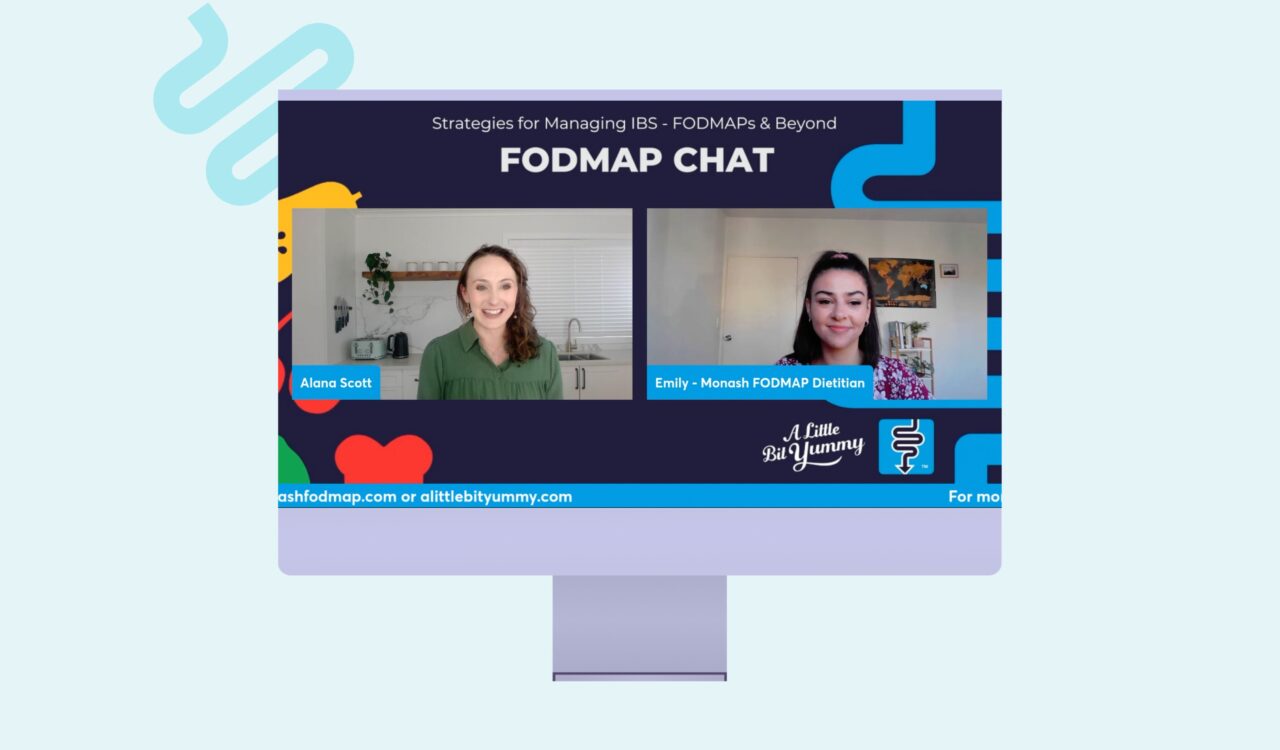
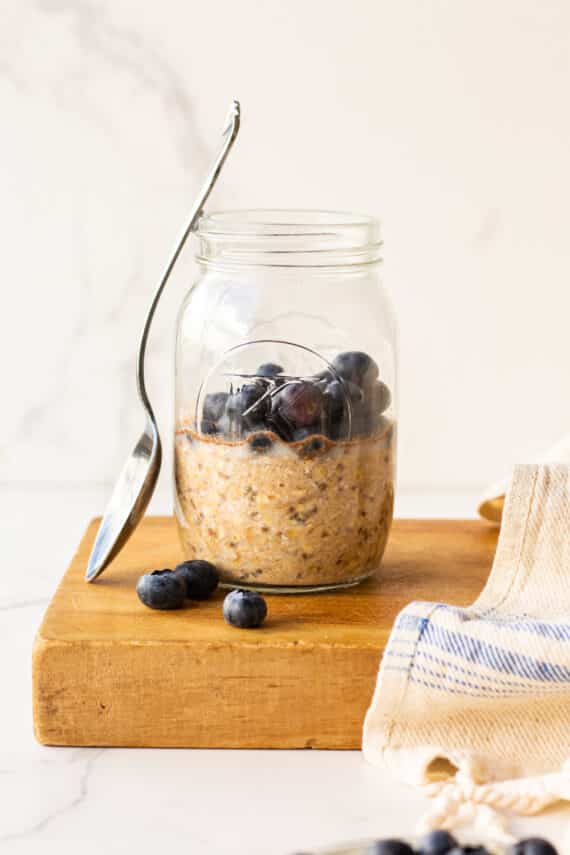
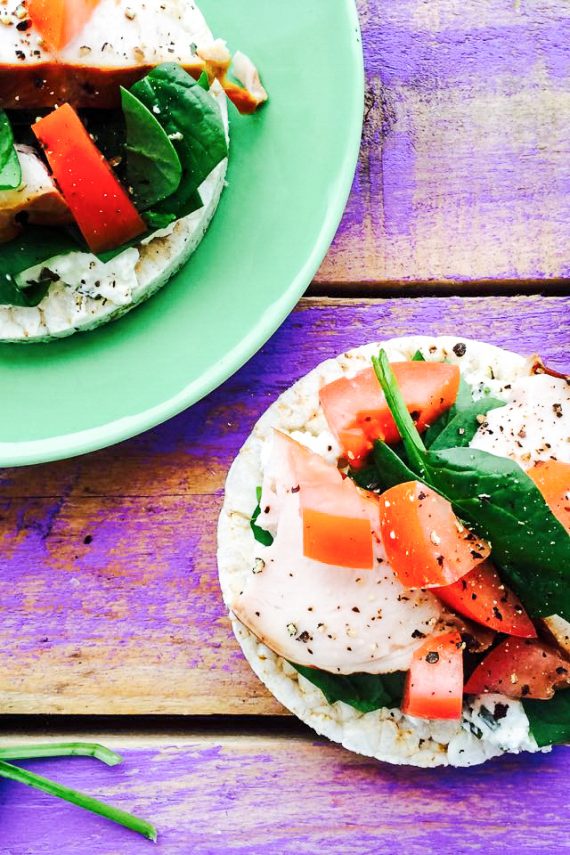
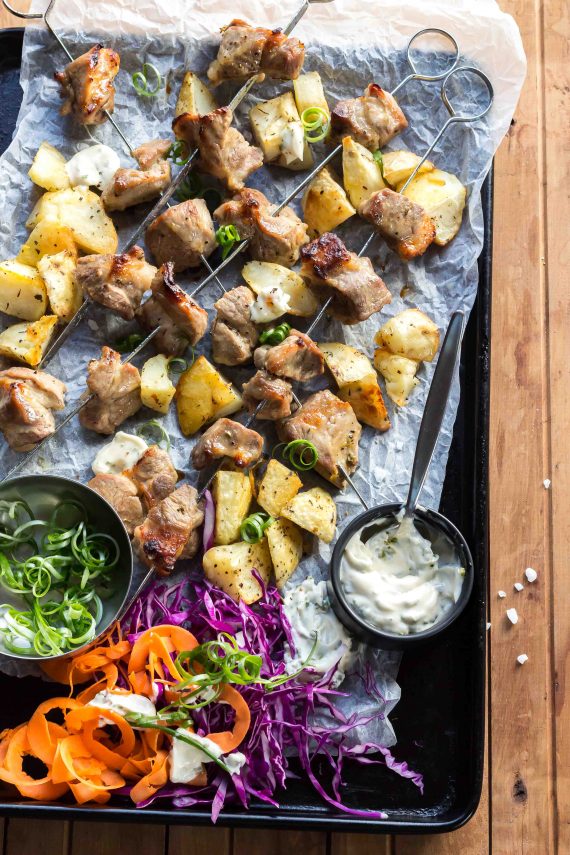
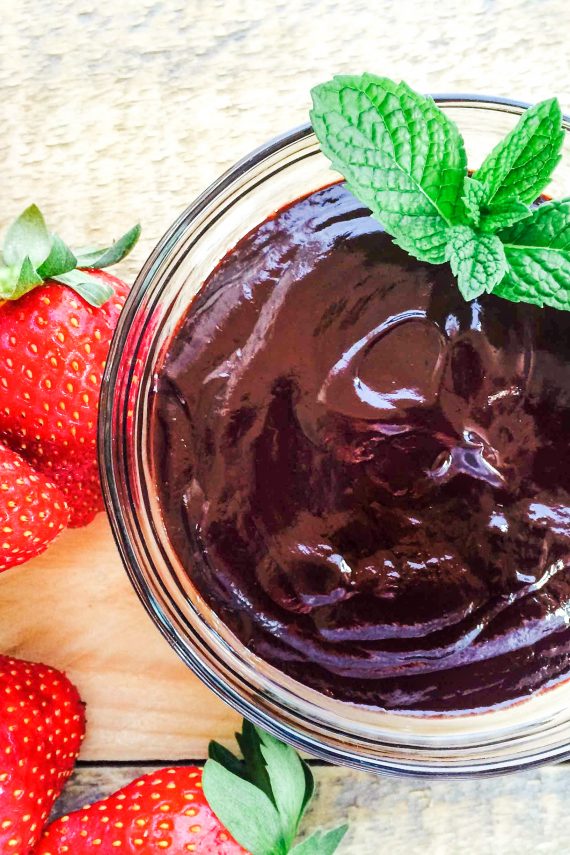







Leave a Reply